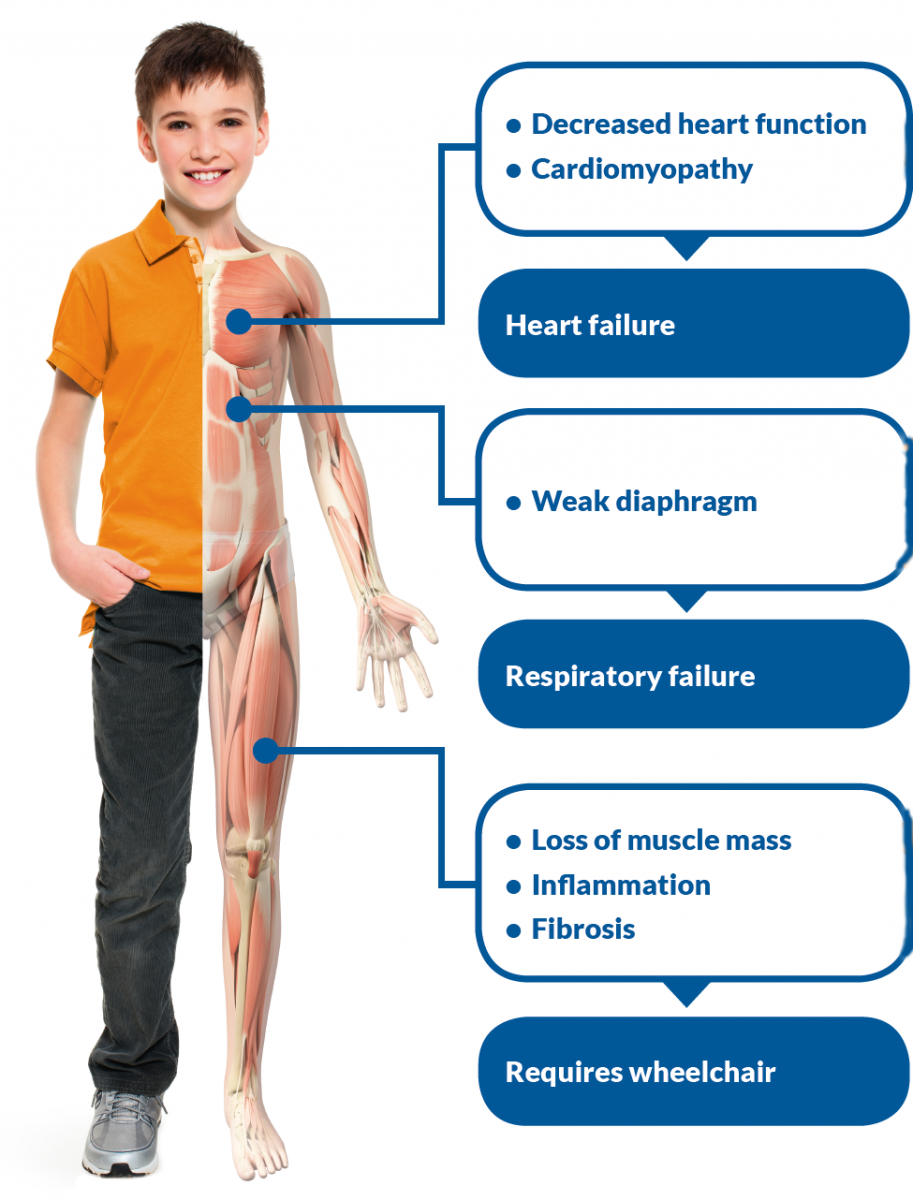Duchenne Muscular Dystrophy (DMD): Clinical Trial OF Systemic Delivery Of Micro-Dystrophin Gene Therapy In Children With DMD Shows Positive Results
Source: Duchenne Muscular Dystrophy or DMD Jun 16, 2020 4 years, 10 months, 1 week, 3 days, 10 hours, 11 minutes ago
Duchenne Muscular Dystrophy or
DMD: Initial findings of the first four patients treated in the first clinical trial of systemic delivery of
micro-dystrophin gene therapy in children with Duchenne muscular dystrophy (DMD) suggest that the therapy can provide functional improvement that is greater than that observed under the standard of care.

Dr Jerry Mendell, MD, the study's co-author and principal investigator with the Center for Gene Therapy in the Abigail Wexner Research Institute at Nationwide Children's Hospital told Thailand Medical News, "We are very pleased to report successful delivery of the micro-dystrophin transgene to the nuclei, corresponding to robust gene expression and proper localization of micro-dystrophin. This coincides with improvements in functional measurements in study participants who received SRP-9001."
The clinical trial findings were published in the journal:
JAMA Neurology.
https://jamanetwork.com/journals/jamaneurology/fullarticle/2767086
Duchenne Muscular Dystrophy or DMD is a fatal neuromuscular disease that occurs in approximately one in every 5,000 males worldwide. It is caused by a mutation in the gene that encodes for dystrophin, and symptoms usually appear in infants and toddlers. The dystrophin gene itself is too large to fit in to the adeno-associated viral vector used in the gene therapy technology utilized by the study. Researchers have developed micro-dystrophin as a microgene that provides function while still fitting in the vector.
Four pediatric participants, aged 4 to 7 years at time of infusion were treated with a single dose of 2.0 x 1014 vg/kg rAAVrh74.MHCK7. micro-dystrophin (SRP-9001 micro-dystrophin, Sarepta Therapeutics), which was infused through a peripheral limb vein. All treatment-related events were mild to moderate and there were no serious adverse events. The most common treatment-related adverse event was vomiting (9 of 18 events). Three patients had temporarily elevated levels of gamma-glutamyltransferase, which was resolved with corticosteroids.
It was observed clinically that at 12 weeks post-infusion, gastrocnemius muscle biopsy specimens showed a mean of 81.2% of muscle fibers expressing micro-dystrophin, with a mean intensity of 96% at the sarcolemma. Western blot showed a mean expression of 74.3% without fat or fibrosis adjustment and 95.8% with adjustment.
The four pediatric patients had confirmed vector transduction and showed functional improvement of North Star Ambulatory Assessment (NSAA) scores. The NSAA is a 17-item measure of ambulatory functions with a score range from 0 to 34.
All patients also showed reductions in creatine kinase (CK) levels that were maintained for one year.
The various functional outcomes measured included time to rise, four-stair climb, 100-m timed test and handheld dynamometry for knee extensors and flexors and elbow extensors and flexors, but their results were more varied.
Dr Mendell added, "NSAA score improvement and CK score reduction appear to be the most sensitive measures. Diffe
rent magnitudes of improvement were observed in the other functional measurements, suggesting that a larger sample size and clinical trial are needed to validate improved motor function. Variation in clinical outcomes was associated with many factors, including age and disease severity."
The clinical study is intended to continue until March 2021.
Dr Mendell further added, "Duchenne muscular dystrophy is difficult to treat, and gene therapy offers a needed option having the potential to alter the course of the disease. Utilizing currently available treatments, the condition is universally fatal, and patients usually succumb to the disease in their twenties."
He added that the safety results, together with biological and clinical markers of efficacy, provide proof-of-concept support for continuation of clinical trials for assessment of SRP-9001 using single-dose gene therapy in participants with Duchenne.
Dr Louise Rodino-Klapac, Ph.D., senior vice president of gene therapy at Sarepta Therapeutics further commented, "Following the 9-month update we shared last year, the publication of these results further supports the potential for SRP-9001 to provide clinically meaningful functional improvements in terms of speed and magnitude for DMD patients. We look forward to advancing our ultimate goal of profoundly improving the lives of as many patients living with DMD as possible."
For more on
Duchenne Muscular Dystrophy or
DMD and
micro-dystrophin gene therapy keep on logging to Thailand Medical News.
